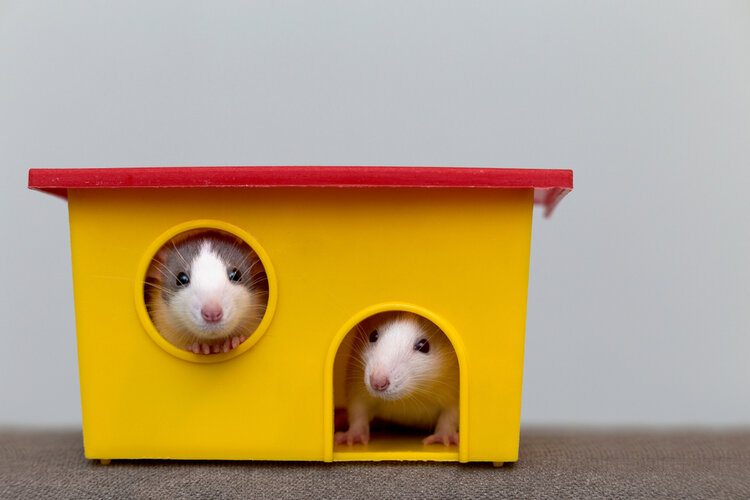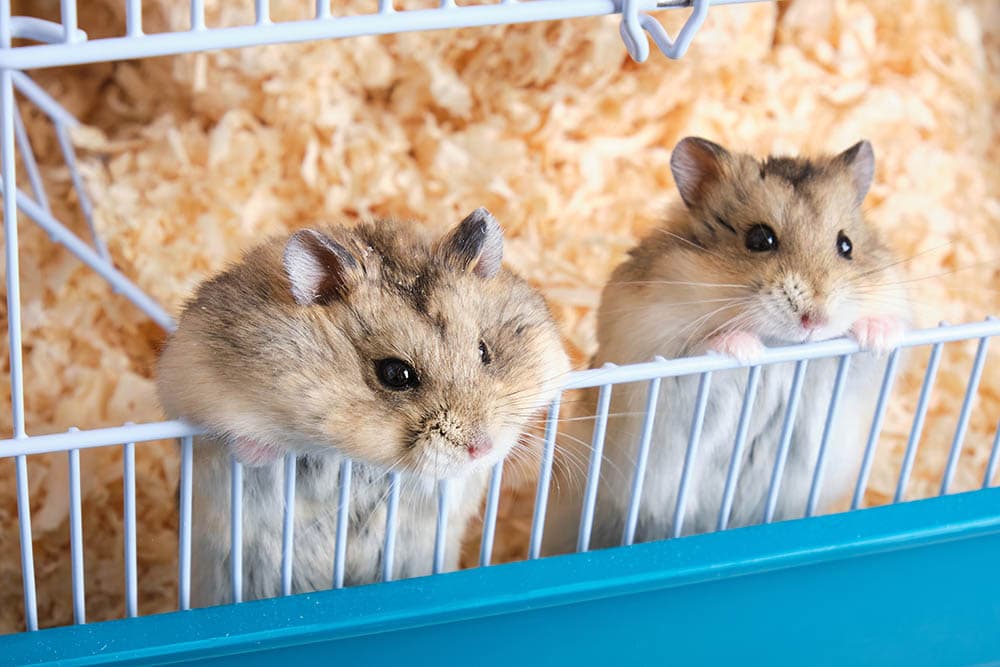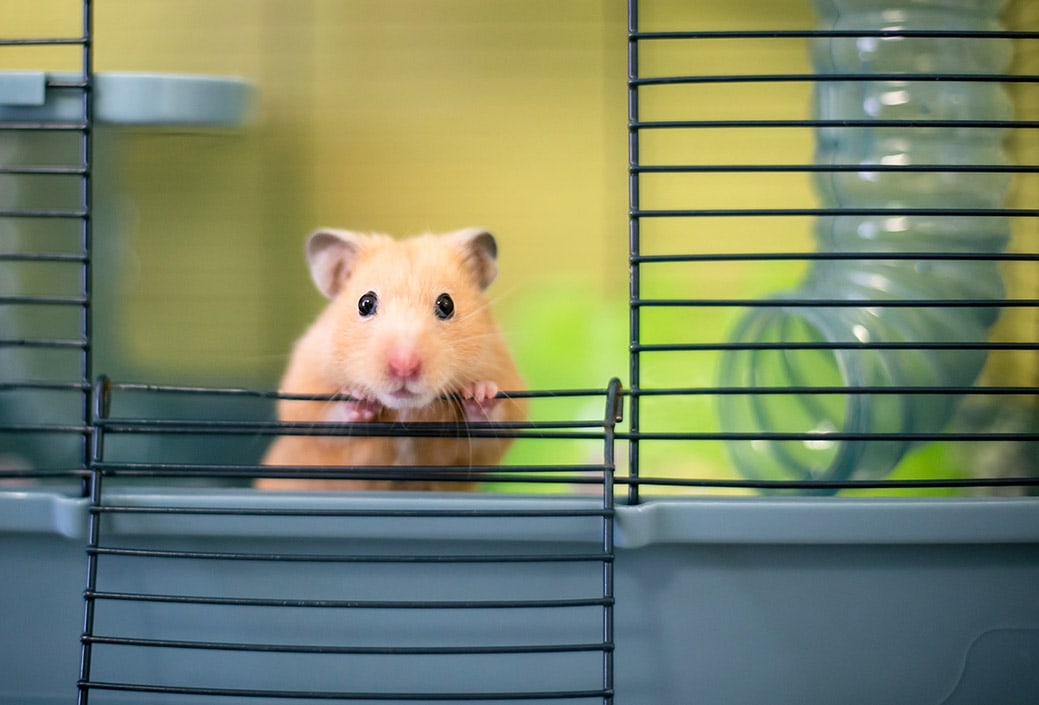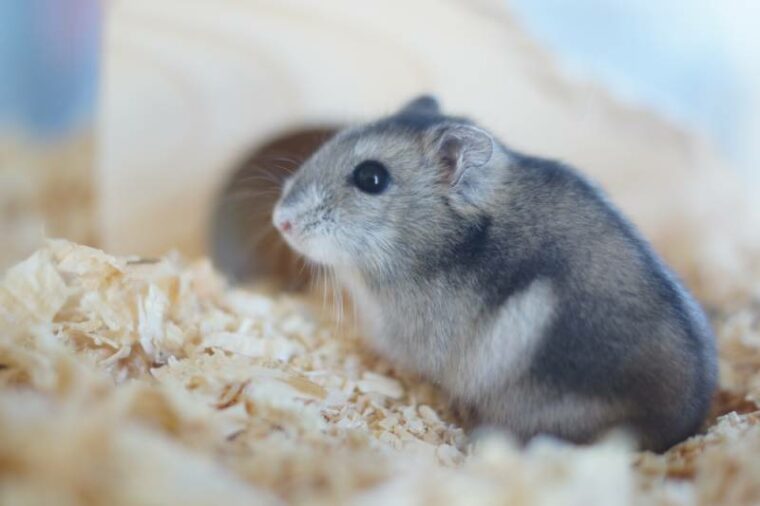
Hamsters are very sensitive to drugs and chemicals, and the side effects can be rather severe. Depending on the level of exposure, the pet can become disoriented, experience seizures, or even get long-term damage to the nervous system. In the worst-case scenario, the rodent may even die!
So, why does this happen? How do you protect the hamster from drugs? Let’s find out!
Do Hamsters Really Get High?
The short answer is yes, they do. Much like humans, hamsters have so-called “cannabinoid receptors”. That’s how they get high from marijuana. Even if they’re just dwelling in the same room with you, the second-hand smoke will still have an effect. And since these rodents are rather tiny, it doesn’t take much to get them “faded.”
Hamsters have been used as a model to investigate the effects of cannabinoids on the circadian rhythm 1. The results do highlight the potential dangers of cannabinoids on the circadian rhythm, indicating that hamsters are indeed susceptible to “getting high”.
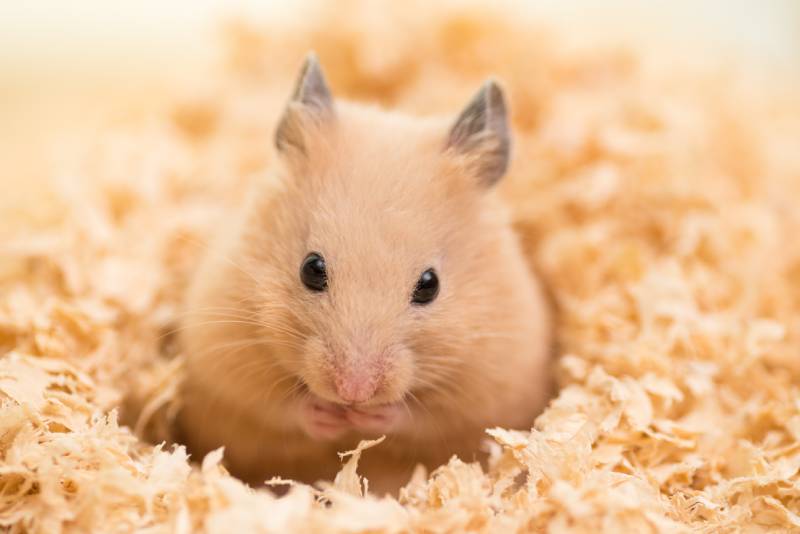
How Does Vaping and Smoking Affect Hamsters?
Lack of coordination, lethargy, and stress are the most common side effects of nicotine and cannabis exposure. Hamsters have been extensively used as models for better understanding human respiratory ailments 2, and therefore, smoking and vaping can definitely affect them in adverse ways.
Consumption of cannabis and other psychoactive drugs may even kill a hamster! These creatures are simply not built to withstand any of that. That’s why the safety of the pet should always be the top priority.
Sometimes, high-as-a-kite hamsters may exhibit a change in behavioral patterns. For example, instead of becoming dizzy and lethargic, they get more active. You might also notice the pet being more aggressive, especially if there are other domestic animals in the house. Some squeaking may be a part of the deal as well.
Is Cannabis the Only Hazard? What About Other Plants?
Smoke and vapors spread rapidly and can fill a large room in less than a minute. And, since cigarettes and vaping are very common, this is how most hamsters (or other rodents) get high.
Or it can be any other herb or chemical/psychoactive product like coca, opium, narcotic lichen, or yage. Even a garden or house plant can be a hazard for hamsters. And let’s not forget about cocaine, alcohol, caffeine, and chocolate. These products are not safe for hamsters to ingest, even in tiny portions. For example, the side effects of eating chocolate are very similar to that of getting high.
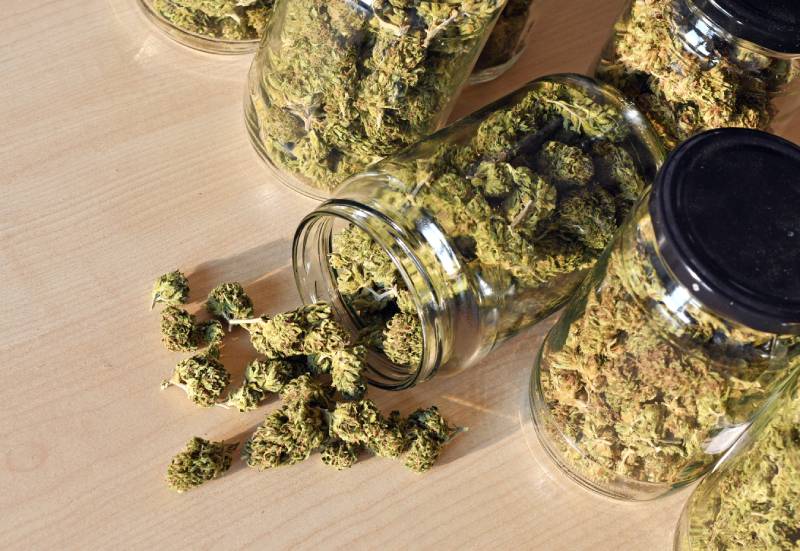
Antibiotic Toxicity: Another Big Issue for Hamsters
Like most domesticated rodents, hamsters are very sensitive to a wide range of antibiotics, especially penicillin. As mentioned, their bodies are not equipped to handle certain chemical compounds. When ingested, the medicine affects the “good” bacteria in the pet’s GI tract and gives the “bad” bacteria the upper hand, leading to a toxic overdose. Even if you apply the product to the skin, the hamster may still die.
This doesn’t mean ALL antibiotics are hazardous, though. Consult with a vet to learn about the safe drugs/meds for the rodent.
How Do You Keep a Hamster From Getting High? A Quick Guide
So, how does the average pet owner make sure their hamsters are safe and sound? Well, you can always stop smoking: that will be beneficial for both parties. However, marijuana isn’t the only thing that could harm this tiny rodent. Instead, try to follow these simple yet important rules:
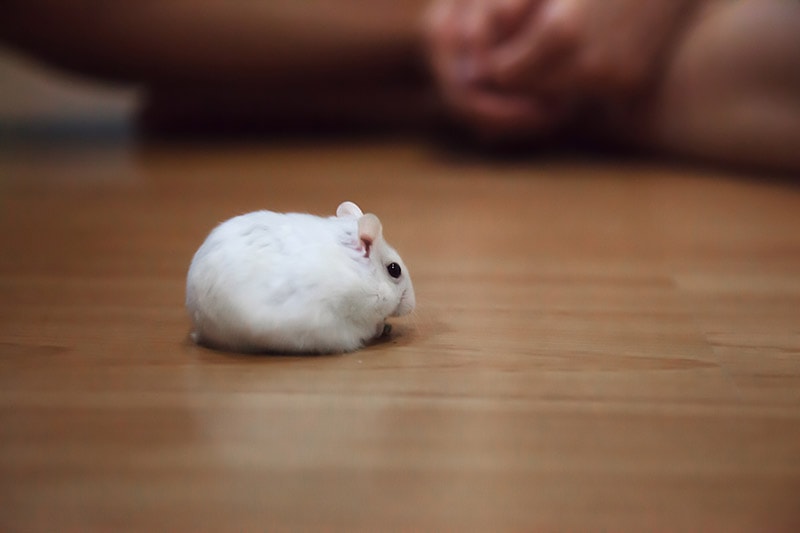
The Hamster Accidentally Got High: What Should You Do?
If you just realized that the pet inhaled some of that “killer smoke,” don’t panic. Instead, act swiftly and remove the drugs from the area. To make sure the pet is okay, take them to a veterinary clinic. You should always take your hamster to a vet if you suspect that they’ve inhaled or ingested cannabis.
As a bonus, once the vets allow you to take your pet back home, shower them with as much comfort as you can. That includes extra cushy bedding, premium-quality food, fresh water, and no more drugs or smoking.
Conclusion
Hamsters are inquisitive, adorable balls of fur, praised for their miniature size, playful temperament, and modest maintenance needs. That said, you need to be very careful not to expose your pet to certain drugs, types of weed, and antibiotics.
If you smoke marijuana or any other psychoactive drug in the presence of a hamster, that won’t end well. As we learned today, the consequences can be catastrophic, including anxiety, loss of appetite, permanent damage, and even a fatal outcome. So, follow the safety tips from our guide and keep the hamster comfy!
Featured Image Credit: Makoto_Honda, Shutterstock




